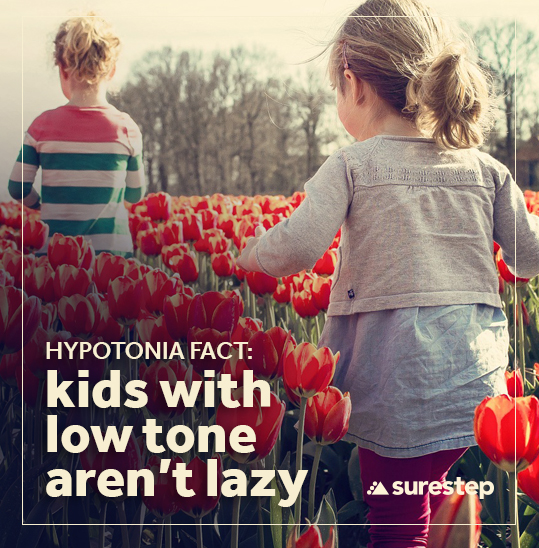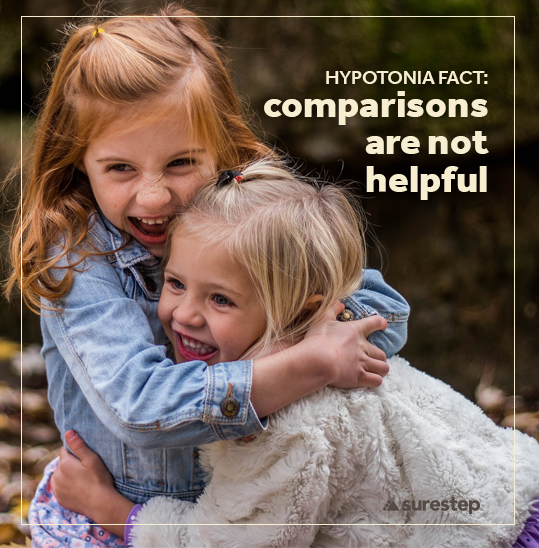8 Hypotonia Facts You Need To Know

With every child comes plenty of questions. And if that little bundle of joy has hypotonia, the list is a bit longer.
As a parent of a low tone warrior, here are eight facts you, family, and friends should know:
#1

Your child is not weak. What he or she lacks is stability, not strength. However, it’s important to remember that low tone and weakness are linked. Strength naturally increases as muscles are used. But for kids with low tone, some muscles are used in unique ways or ignored altogether. This can keep strength from developing.
#2

As parents, we love to celebrate the big, life-changing milestones. And there’s nothing wrong with that. But don’t overlook all the small improvements it took to get there. Inchstones do matter. This is especially true for kids with low tone. Every step forward took extra hard work to get there.
#3

Low tone doesn’t disappear with time or magically vanish. Your child won’t simply outgrow it. That’s why it’s important to get help at a young age. Discussing your concerns with a pediatrician and physical therapy are good places to start. Your child may also benefit from one of Surestep’s innovative solutions.
#4

Hypotonia causes plenty of daily challenges. One of the biggest is instability. And when falling down is a common problem, sometimes it’s just easier to stay in one place. Low tone also forces muscles to work harder. This means simple, everyday movements we take for granted can be exhausting.
#5

Contrary to popular belief, muscle tone does not change. No amount of medication or surgery will fix it. If your child is on the lower end of the spectrum, he or she will always have low tone. That’s why it’s vital to get help so your child can learn to adapt, develop, and thrive with it.
#6

Each child who has hypotonia is unique. And so is the reason behind it. 600+ conditions are known to cause low muscle tone. Testing takes time. There’s no guarantee of simple, quick answers.
#7

Don’t take a “wait and see” approach towards hypotonia. Getting help at a young age allows your child to face his or her unique challenges and begin catching up with peers.
#8

It doesn’t matter if it’s in connection to siblings or a child in the neighborhood, avoid comparisons. It’s not fair to kids who have hypotonia. They’re little rock stars who can and will surprise you. It’ll just be at their own pace.



